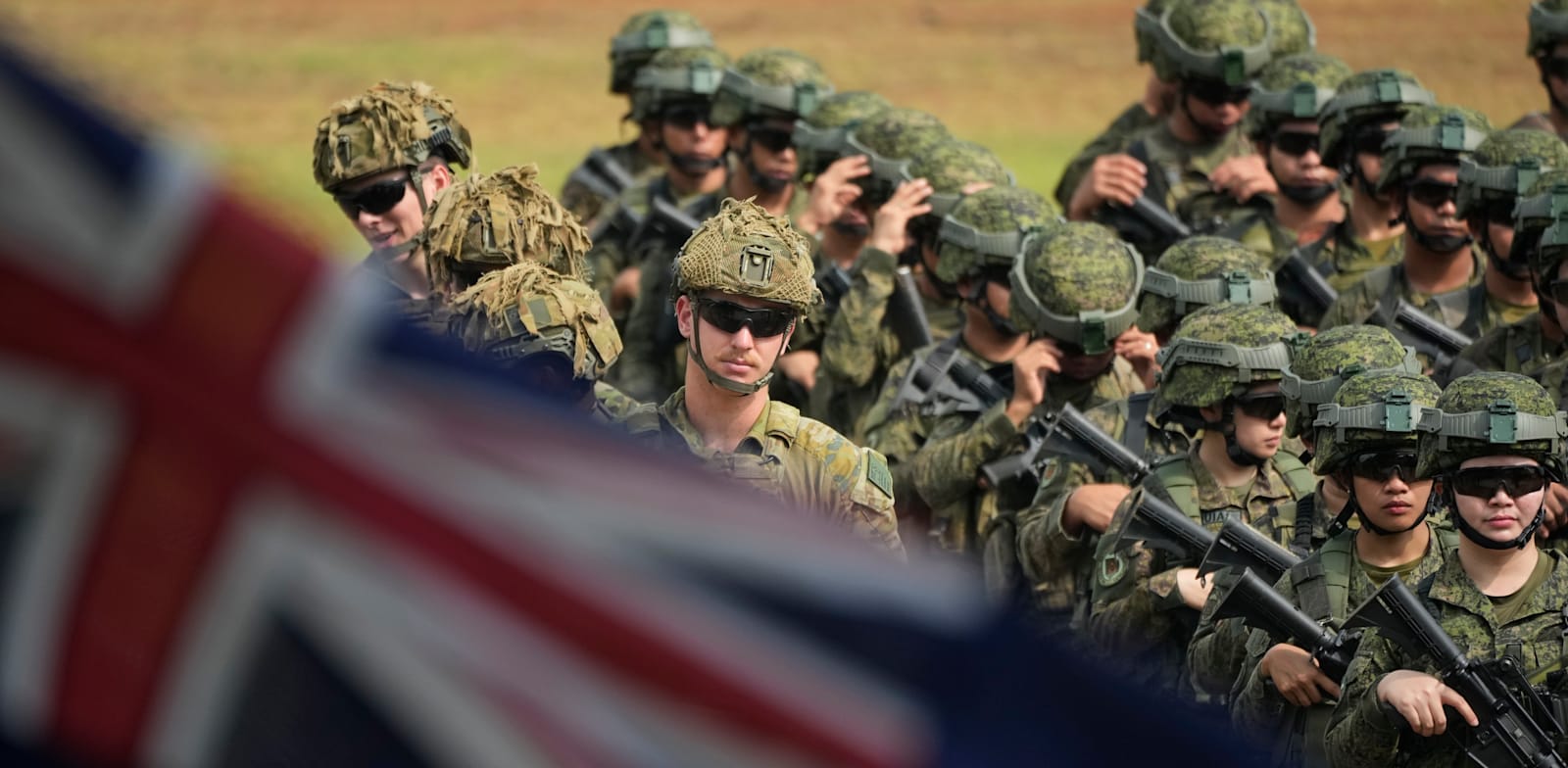The military buildup is not reserved only for Europe. One of the countries that announced a significant increase in their defense spending in the last month is Australia, which may be far from Iran and Russia, but is close to another company in the anti-Western axis that is taking shape – China. The Australians dropped a geopolitical bombshell when they announced three years ago that they were abandoning a deal worth tens of billions to purchase French-made submarines. Instead they joined an American-British strategic alliance called AUKUS for the operation and development of nuclear-powered submarines. The US produces only such submarines, and joining the two military powers should send a clear message to the Chinese about the Australians’ position in the world game.
● Arms deals worth $2.5 trillion: The world is preparing for war
● “The biggest defense budget increase in 30 years”: Britain develops laser weapons and its first tank
But Australia is not content with that. Last month, the Minister of Defense announced the country’s new security policy (National Defense Strategy), the main focus of which is external deterrence. The Australians call it the Strategy of Denial, meaning the ability to prevent the enemy from carrying out or wanting to carry out hostile actions. “Australia will build a larger military that will focus on its own backyard, including investing heavily in long-range missiles against naval targets,” the defense minister announced. The sums are astronomical: this is a total investment of about 330 billion Australian dollars (216 billion dollars) in the next decade, and the announcement last month includes an additional 50 billion dollars for this purpose.
Since the threat to Australia necessarily comes from the sea surrounding the continent, a large part of its military investment is in anti-ship missile systems, including ballistic missiles and long-range missiles, underwater detection and detection systems, as well as a huge fleet, including, as mentioned, nuclear-powered submarines. “The Indo-Pacific space is our habitat, and we want it free and sovereign, free from coercion and hegemony,” said Prime Minister Anthony Albanz. Australia also announced that it would buy hundreds of Tomahawk cruise missiles from the Americans.
In the meantime calm the spirits
As part of the new security concept, the Australian army will be able to strike distant targets even before they pose a threat, more than 500 km compared to the range defined now, 40 km. “Australia will become more independent, more secure and more prepared for threats in the coming years,” Albanz said. China’s apparent intentions to take over Taiwan, the large-scale training of its military, air and naval forces and even the simulation of taking over the Taiwanese presidential palace, all turn on warning lights in the capital Canberra. Such a move would be tantamount to Russia’s attempted takeover of Ukraine, and Australia wishes to be above the low level of war readiness of European countries.
The heavy expenditure is now planned to be paid off starting in 2030, when most of the ships that Australia ordered and the new submarines that it is developing with the US and the UK will go into operation. At the same time, by the way, the country announced an investment in experimental programs for an unmanned aerial vehicle called GhostBat and a marine equivalent called GhostShark, an unmanned submarine which is developed for hundreds of millions of dollars.
Meanwhile, until the army is ready, the Australians are trying to calm the spirits. Unlike NATO, which added China to its official list of adversaries (even before the war in Ukraine), the Australians have so far avoided doing so. They are now playing a diplomatic game and are avoiding defining China as a threat that requires military buildup. “But we’re not talking about Canada,” he said. The head of the opposition, when he also referred to the issue of arming and strengthening.
For your attention: The Globes system strives for a diverse, relevant and respectful discourse in accordance with the code of ethics that appears in the trust report according to which we operate. Expressions of violence, racism, incitement or any other inappropriate discourse are filtered out automatically and will not be published on the website.
